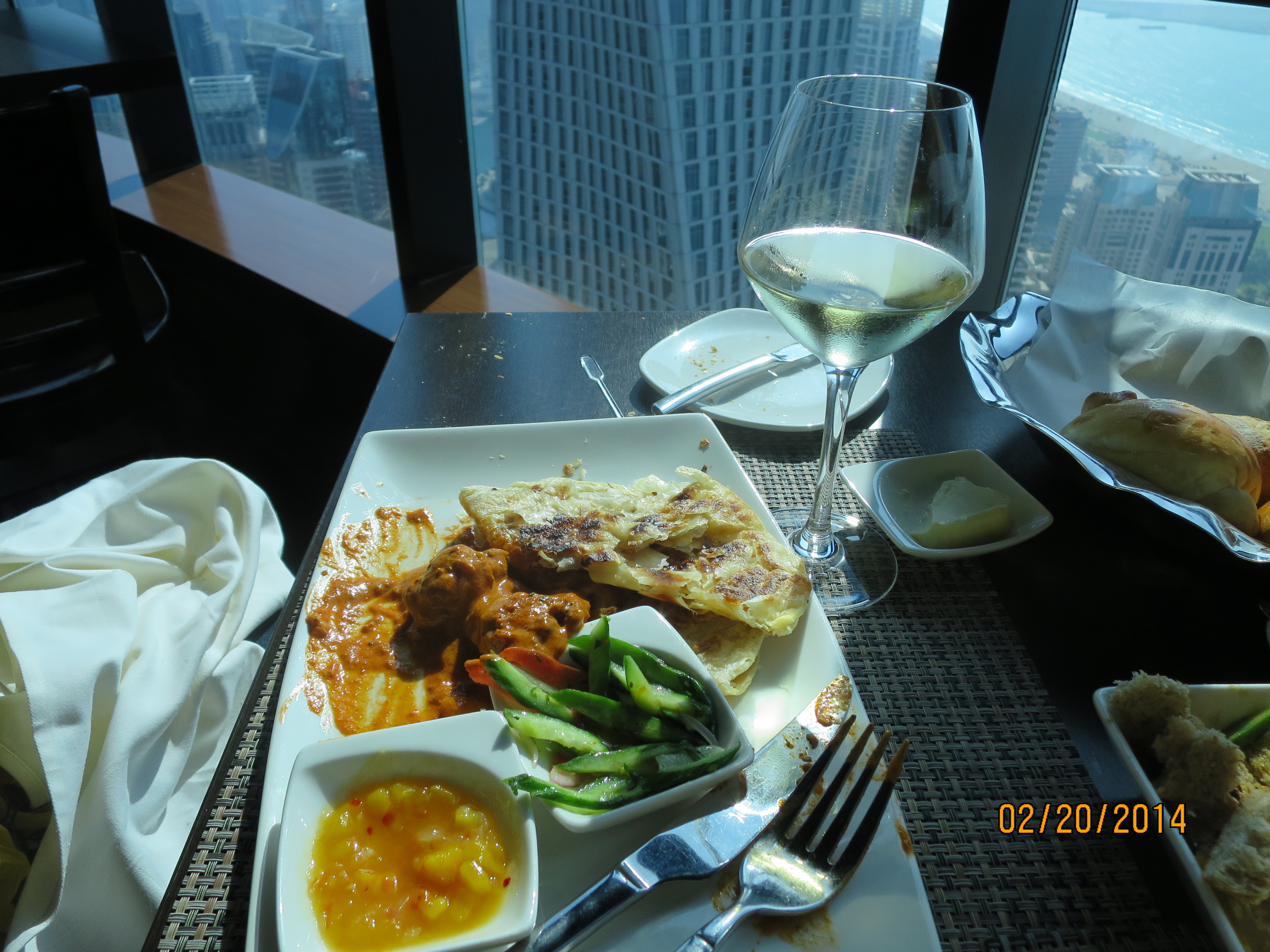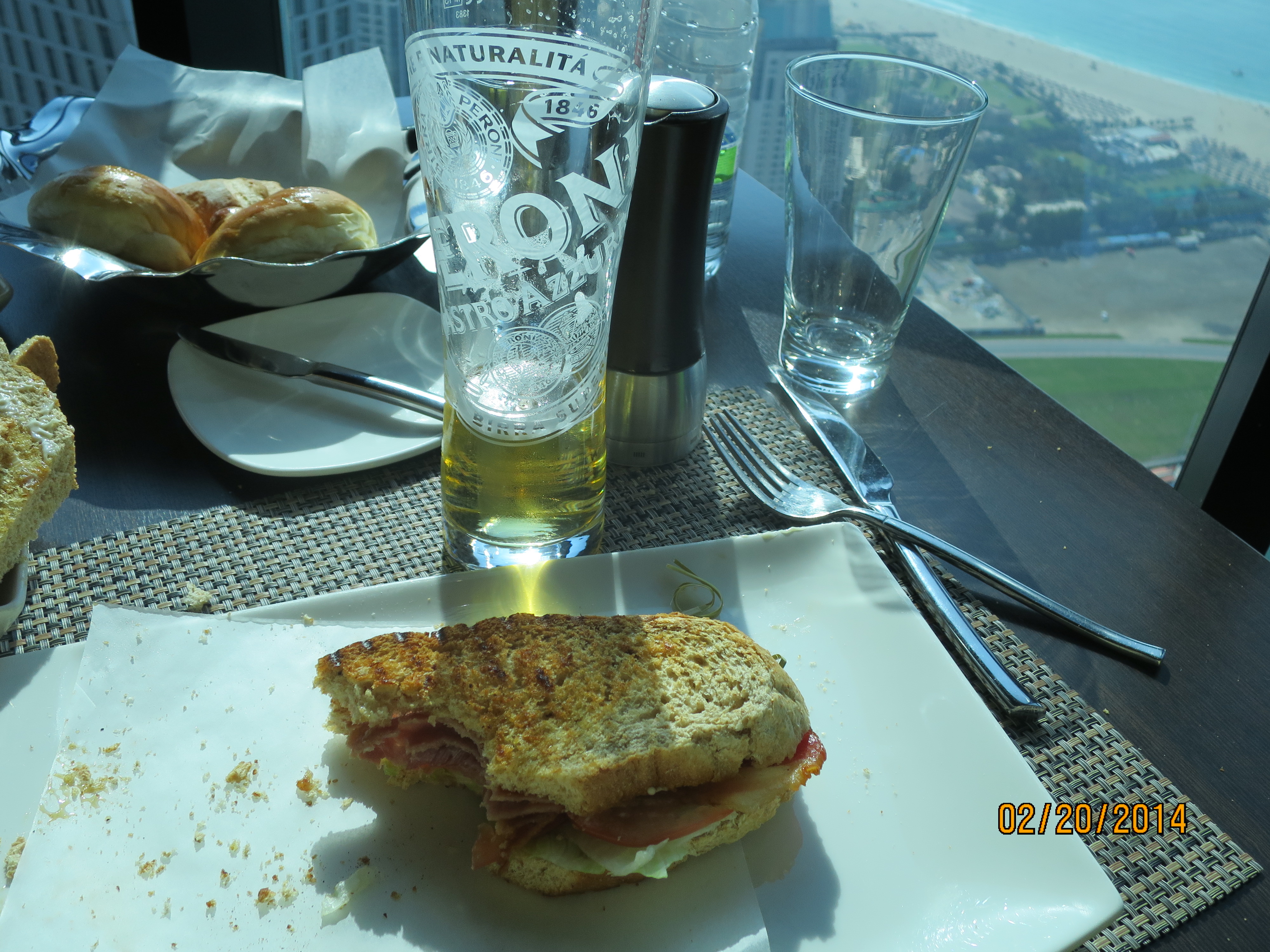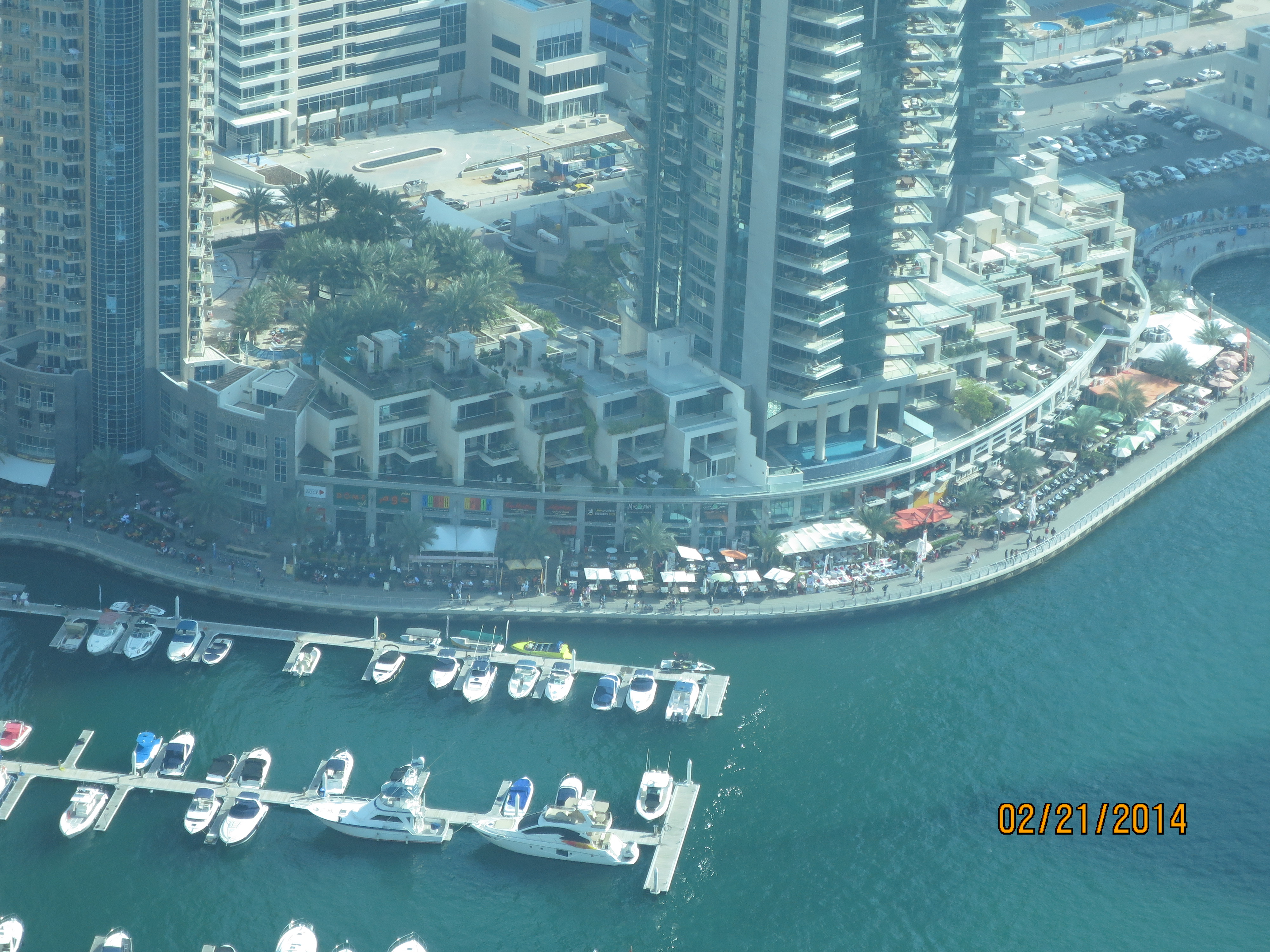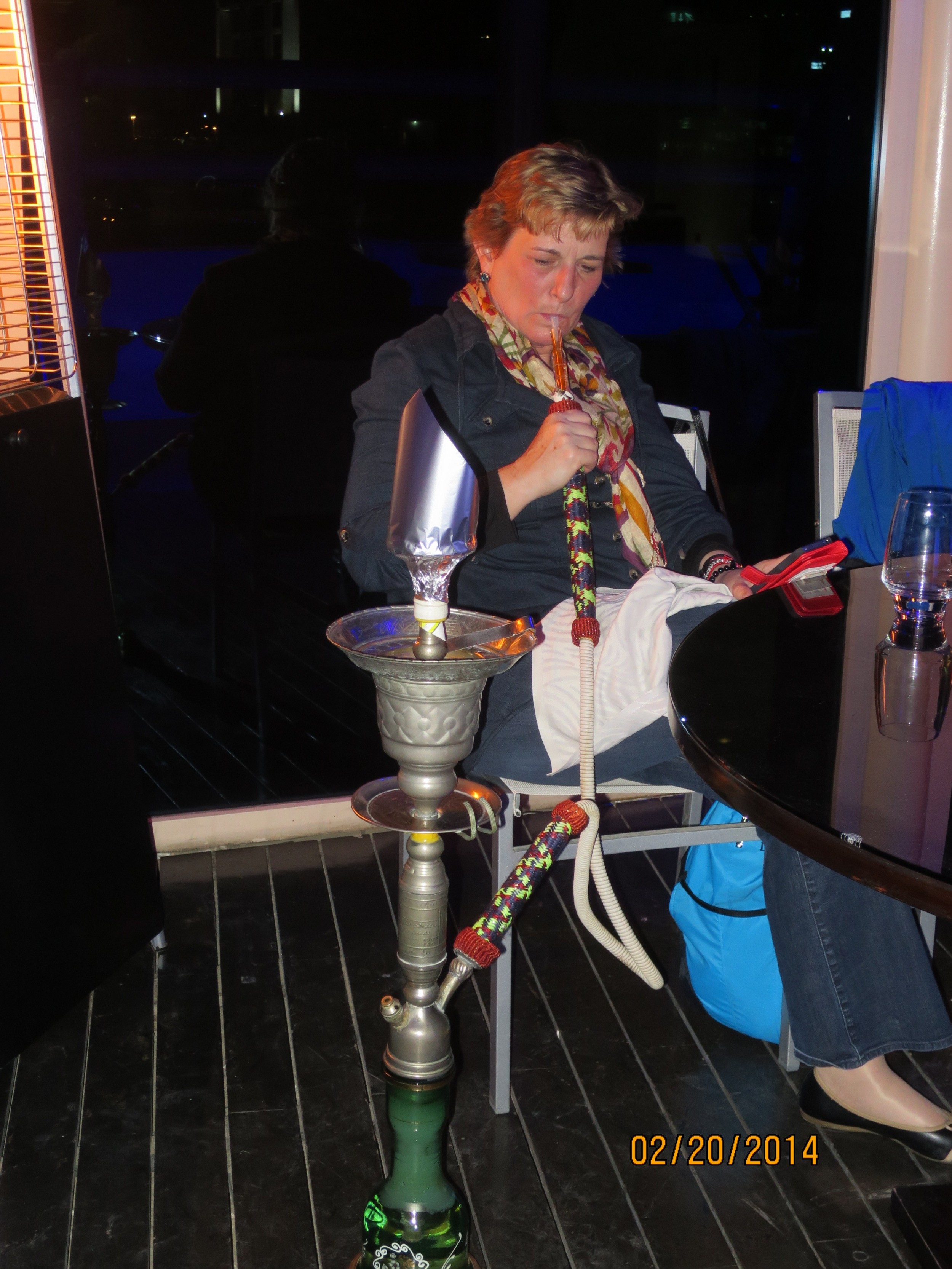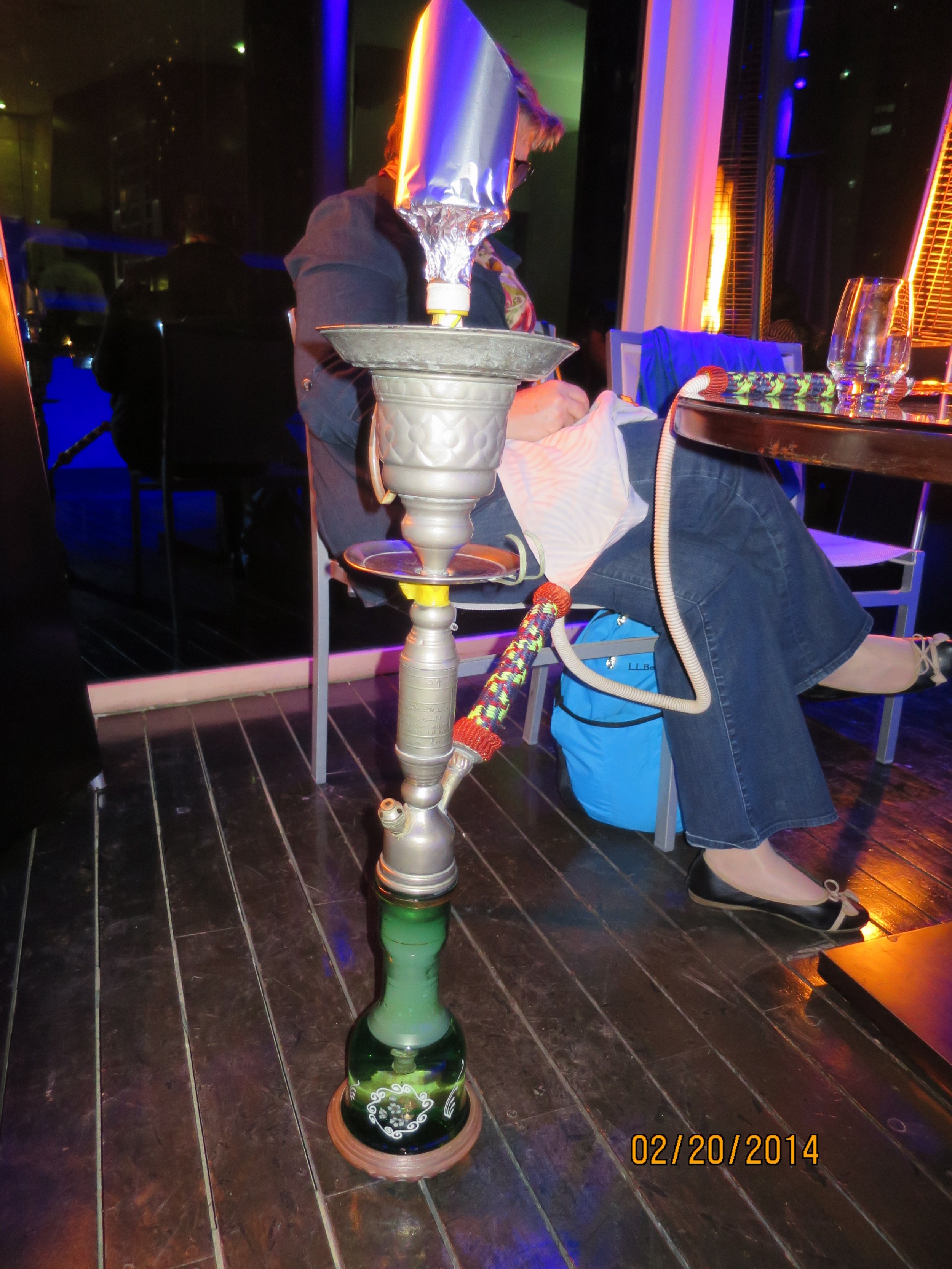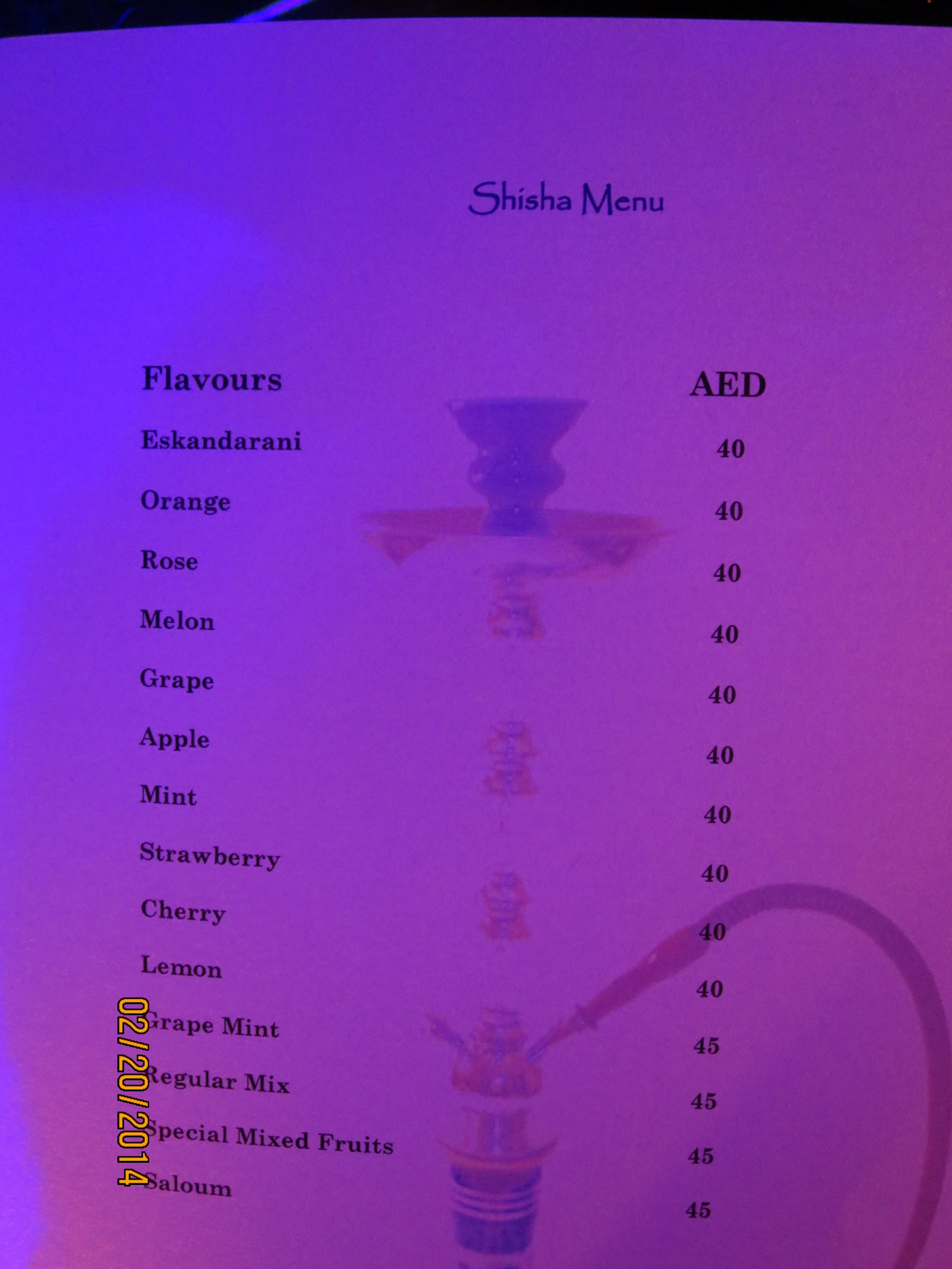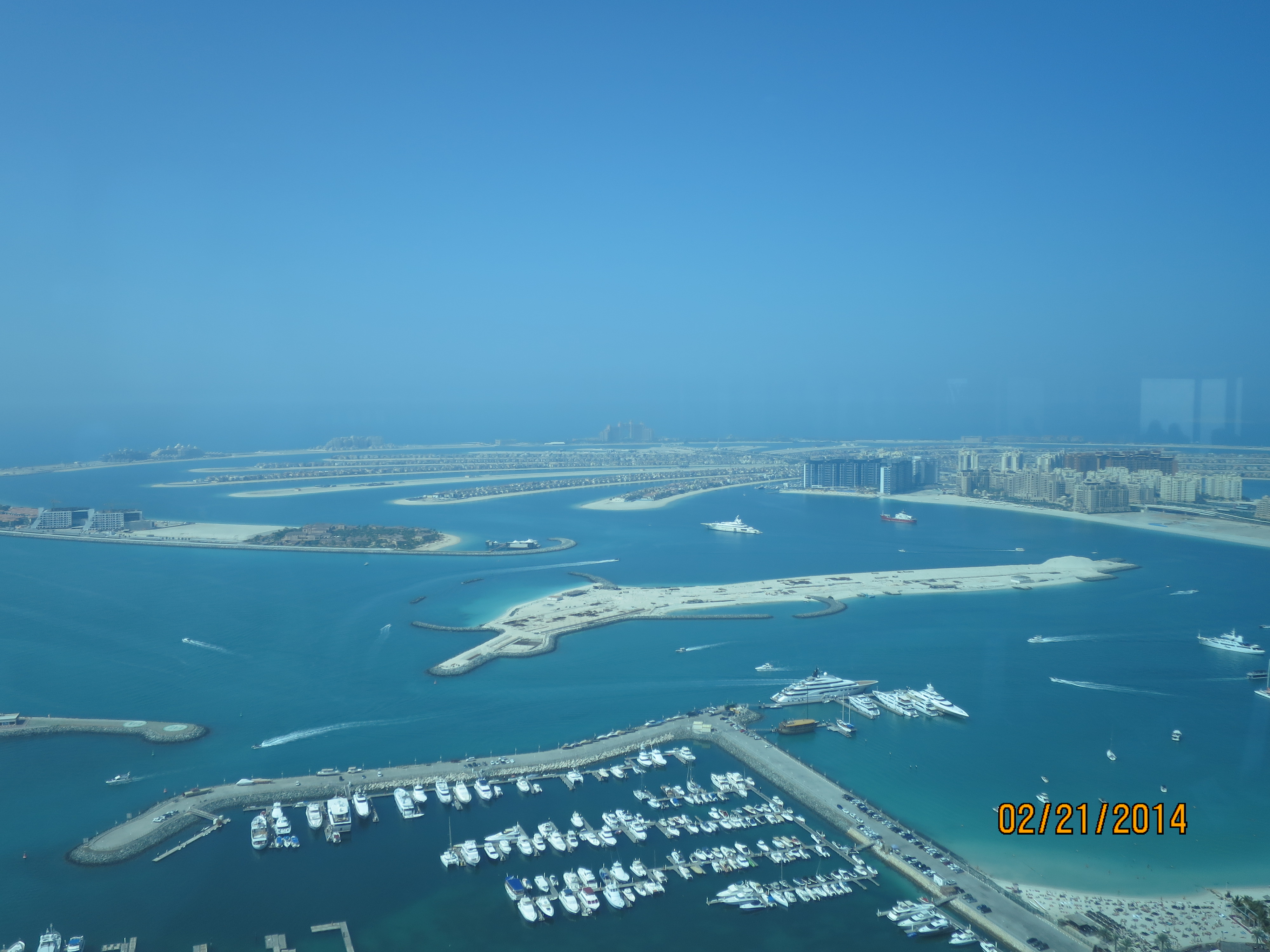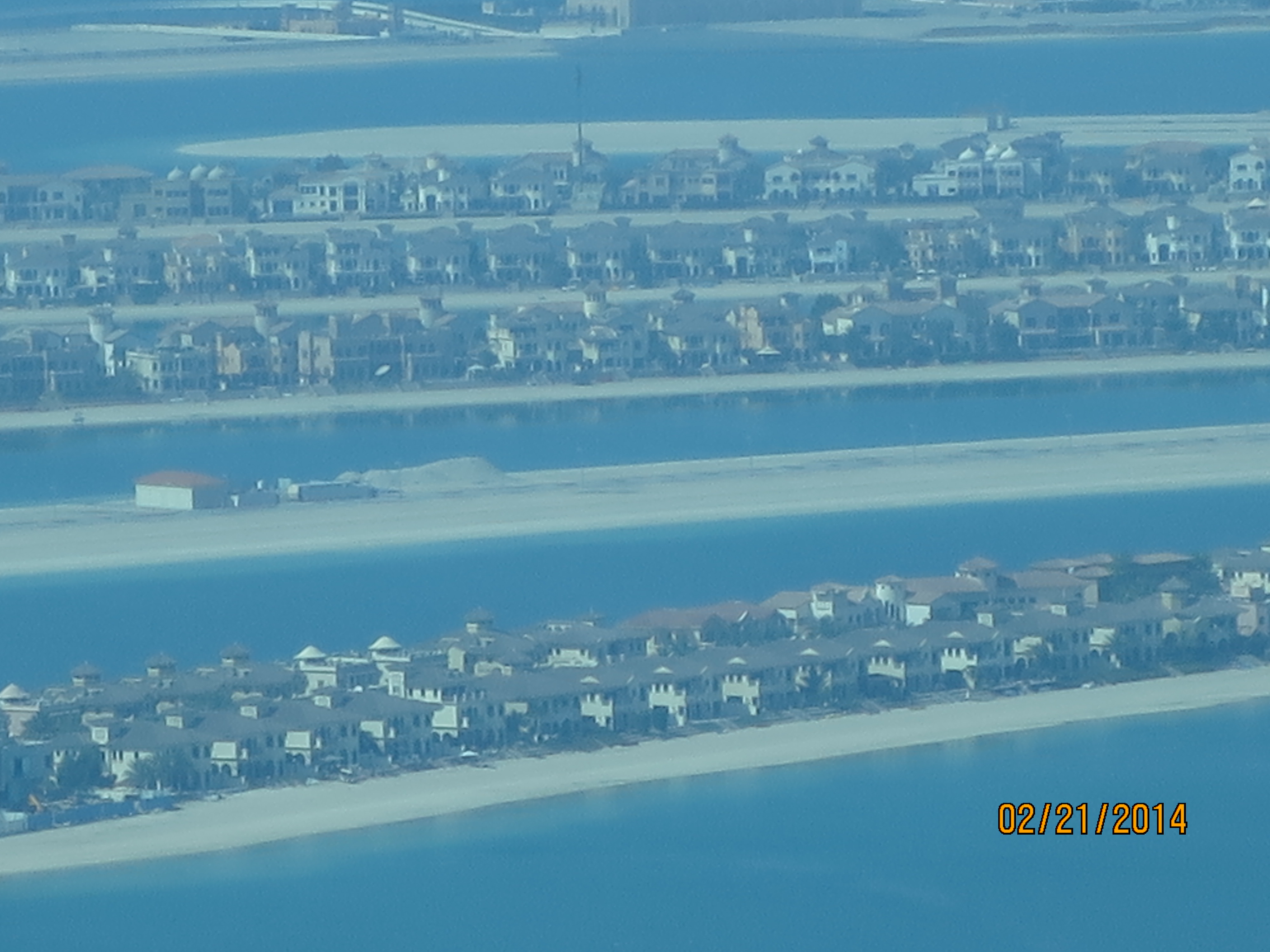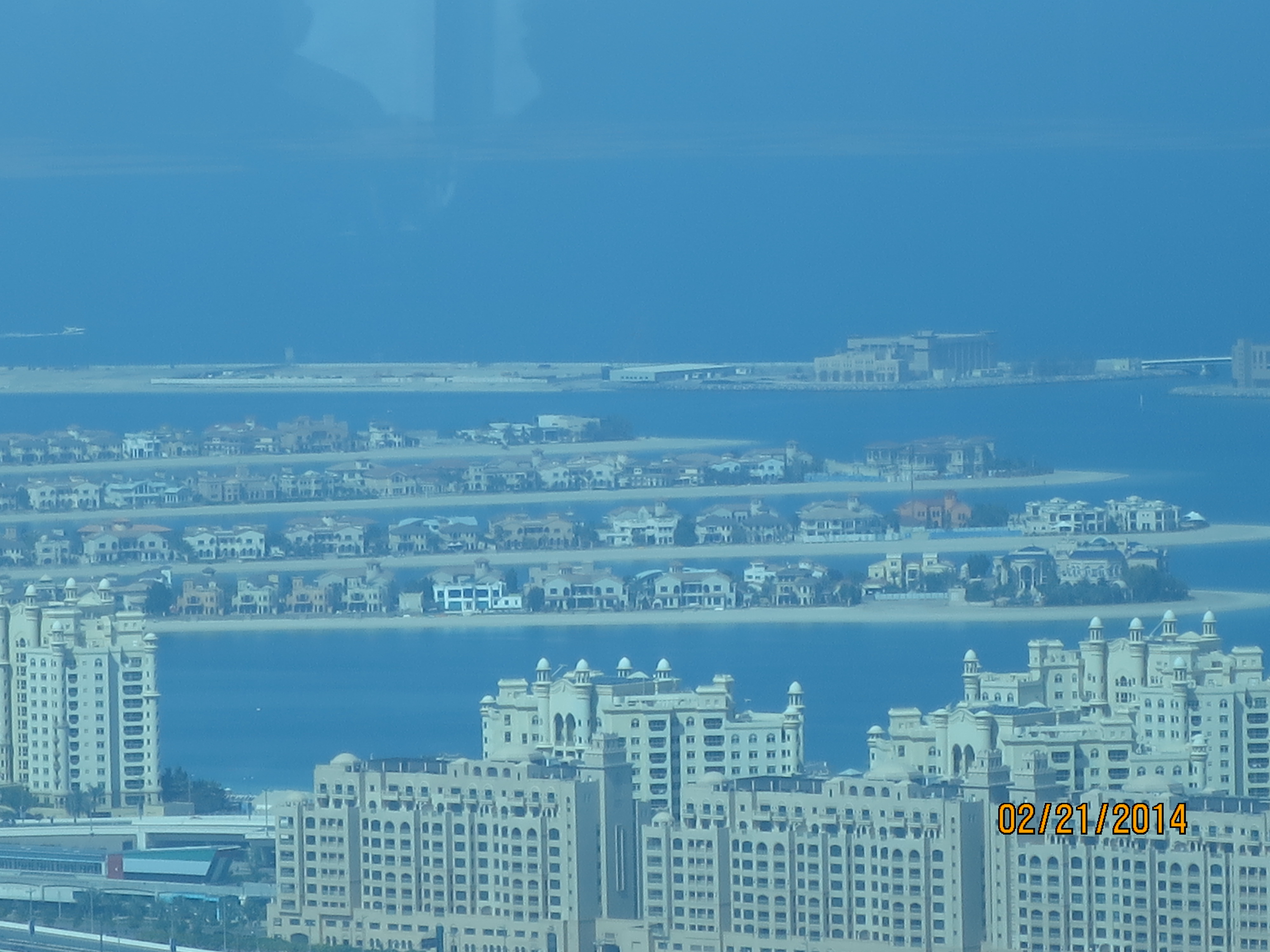Dubai made a decision to diversify from the oil based economy and to put Dubai on the world map by becoming the tourists destination of the world. The onset of these large construction projects resulted in a property boom from 2004-2007 that turned Dubai into one of the fastest growing cities in the world.
However Dubai suffered considerably during the 2008-2009 financial crisis, the property market in particular experienced a major setback taking a heavy toll on property values, construction and employment. Many of the mega construction projects where put on hold. Forbes reported that Dubai has recovered faster from the financial crisis than most counties. The government has allocated $8.8 billion for infrastructure projects in 2012 making the return to big spending.
Dubai has plenty on the drawing board and is waiting for the right time to resume and/or start new projects. It has announced several exciting plans for the future. Last August plans were announced for Dubai’s first underwater hotel the Water Discus Hotel. It will feature 21 underwater rooms. Competing with 4 other cities Dubai put a last minute bid in to host Expo 2020. The Bureau International des Expositions visited Dubai and was so impressed by the infrastructure and the level of support by the city that it awarded Dubai the host the World Expo 2020.
Once again construction cranes are part of the skyline. New lines are being added to the metro system and many roads are being expanded and repaved. It would be very interesting to revisit Dubai for the 2020 Expo. The city will have completely reinvented itself again.
We stayed at the Marriott Marina which is very close to the Palm Jumeirah. We arrived early afternoon and decided to have lunch while our room was being readied. The Observatory restaurant on the 52th floor of the hotel offers wonderful views of the palm and along the gulf. After several weeks in Saudi we were ready for some beer and bacon. Many expats living in Saudi talk about leaving the country for some beer and bacon(alcohol and pork products).
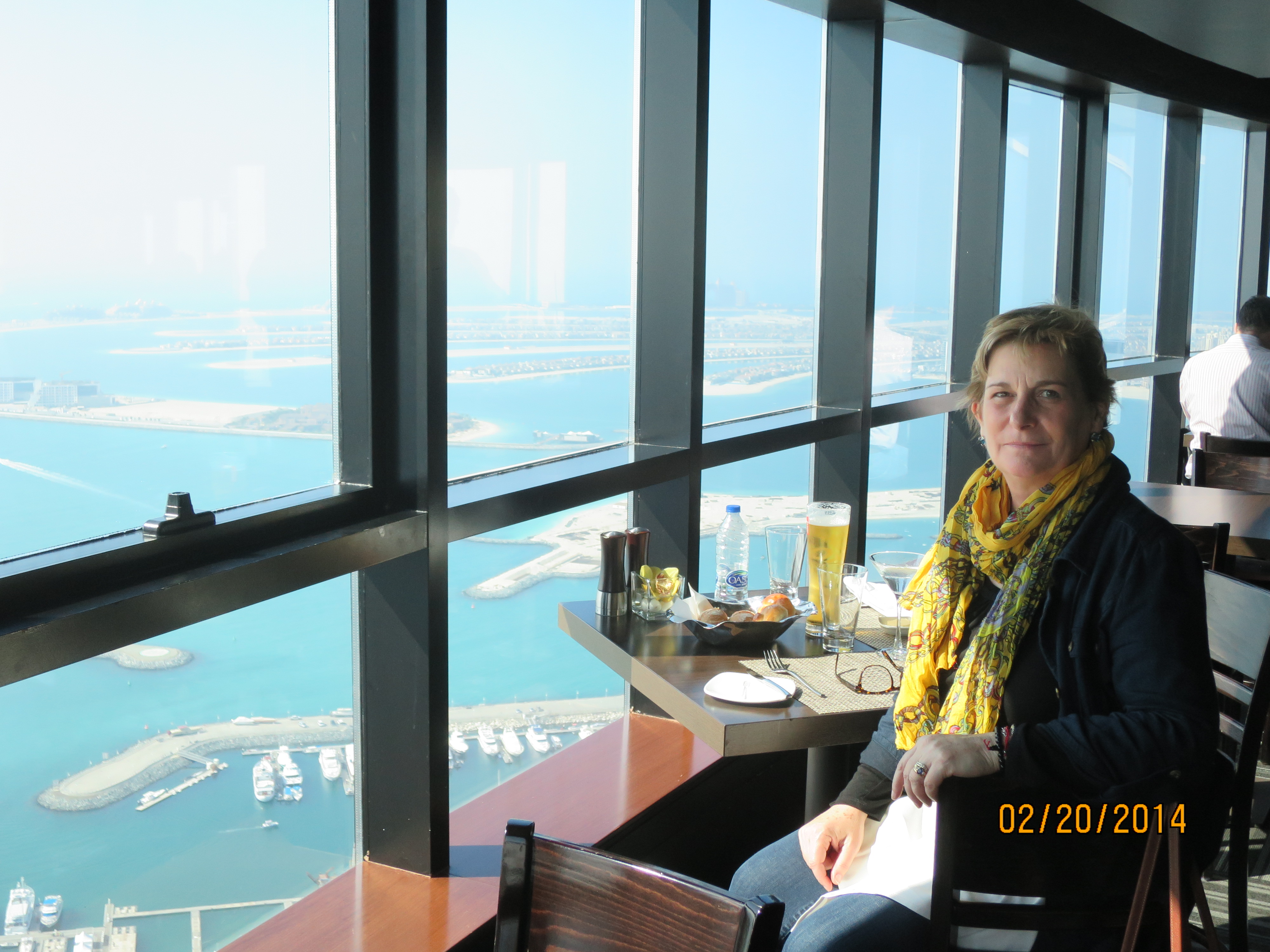
ME enjoying a martini from The Observatory on the 52nd floor of the Marriott Marina with the Palm Jumeirah in the background
The hotel is located in the Dubai Marina district situated on an artificial canal. The canal is two miles long, it is just inland and parallels the gulf. When completed it will be a residential community made up of apartment towers and villas with beautiful landscaped public walkways and parks. It is claimed to be the world’s largest man-made marina taking over 1st place from Marina del Rey.
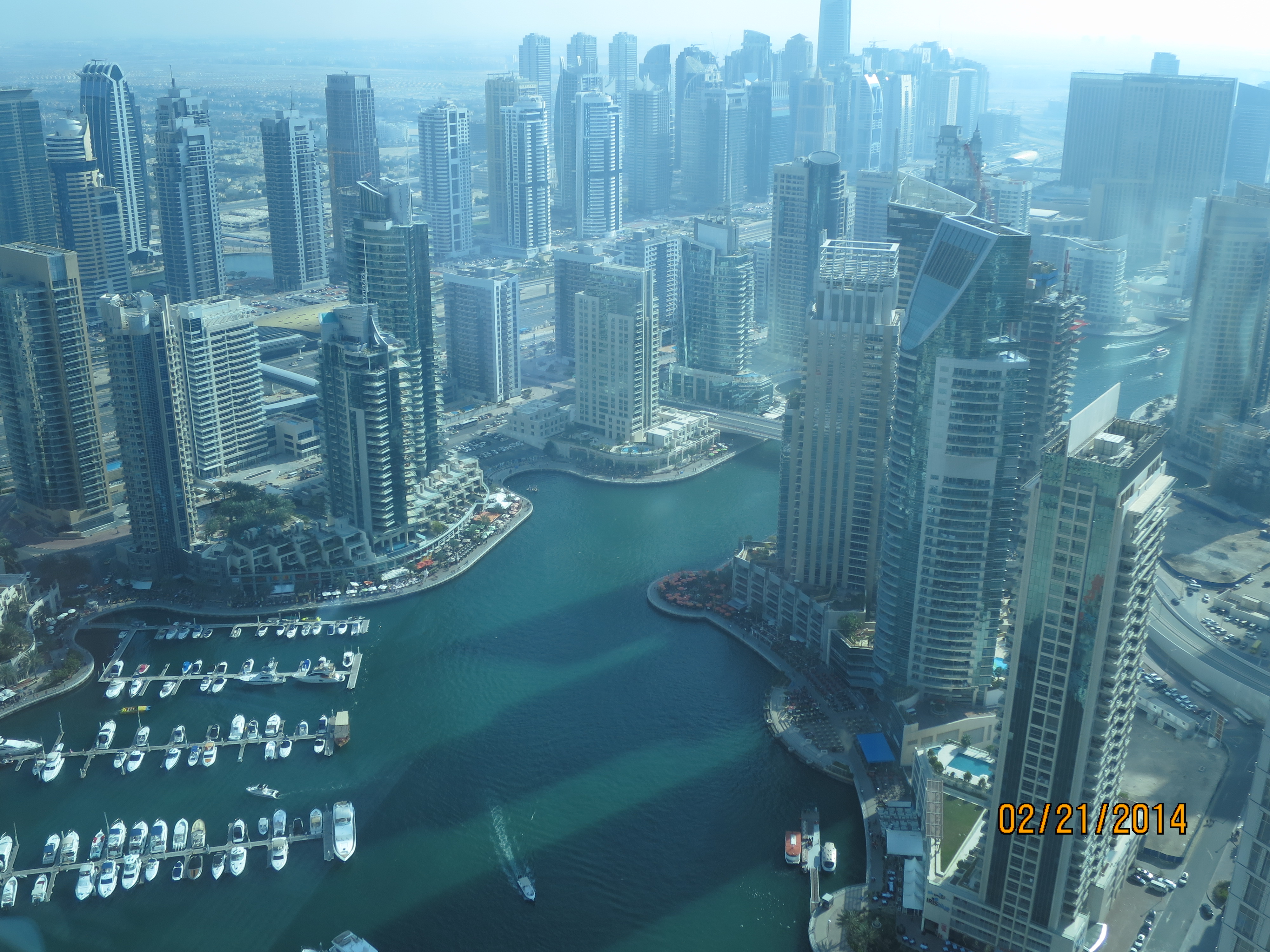
from the 52nd floor of the Marriott, view of the man-made canal, marina, The Walk and apartment towers
The Walk is a promenade that winds around the canal. It is packed with restaurants, cafes, stores and boutiques. ME and I just returned from an evening of walking around the souk and decided to get a drink and a bite to eat on The Walk. As we walked around on this warm night we really did not see any beer or wine bottles in any of the outdoor seating areas. Looking for just the right place to stop we thought we’d ask this one restaurant if they had draft beer. We were shocked to learn that none of these restaurants or cafes serve wine or beer. Alcohol is ONLY served in larger international hotels. What we did see almost at every table were people smoking shisha. Shisha is extremely popular in the non-alcohol Arabic countries. Shisha is a flavored type of tobacco, usually sweet, smoked in a hookah, a large water pipe. Folks enjoy going out with friends for dinner and then enjoy sitting for several hours talking while having their own shisha. I am told it is like indulging in a good Cubin cigar. We ended up making a beeline back to the hotel and had drinks and a meal on the 5th floor restaurant overlooking the marina area.
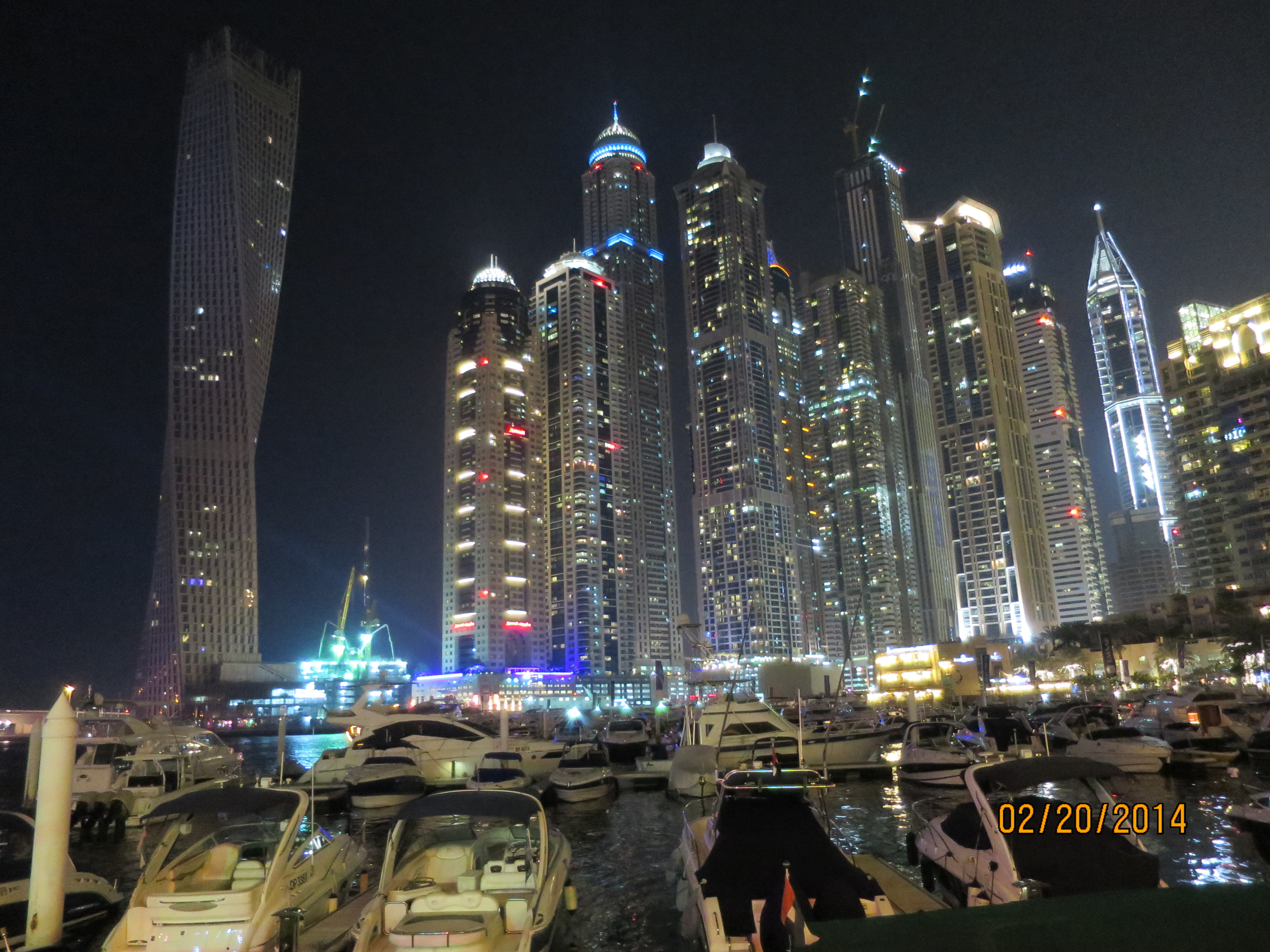
view from The Walk looking at the Marriott, second building on the left, with other apartment buildings, with marina in foreground
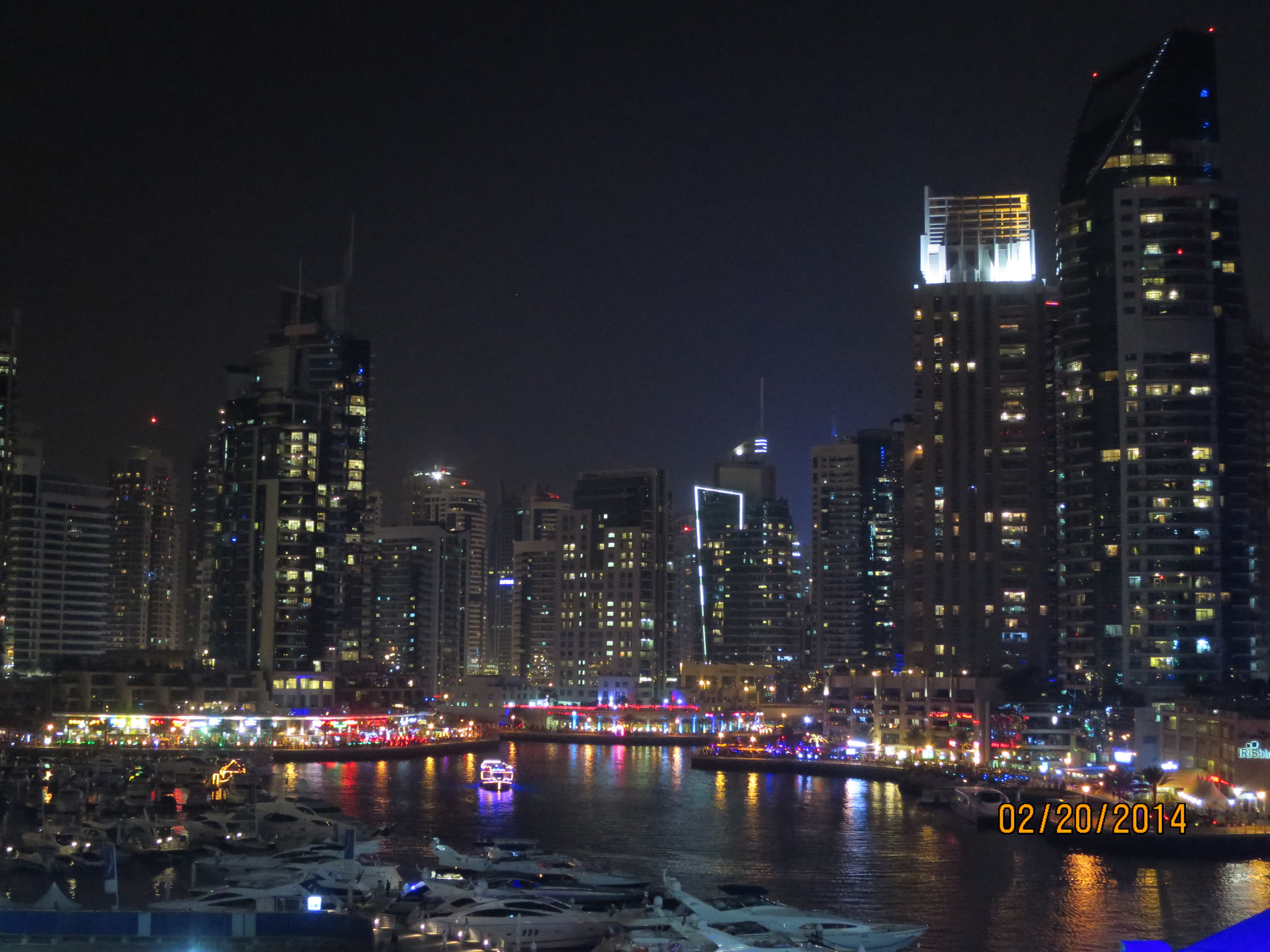
view from the 5th floor restaurant patio of the marina, The Walk, lite up with the colorful lights and apartment towers
The view from The Observatory so incredible we returned for a set price champagne brunch the next day. Here are a few more pictures of this marvelous man made island.
- closeup of villas on the palm, some of the fronds waiting to be developed
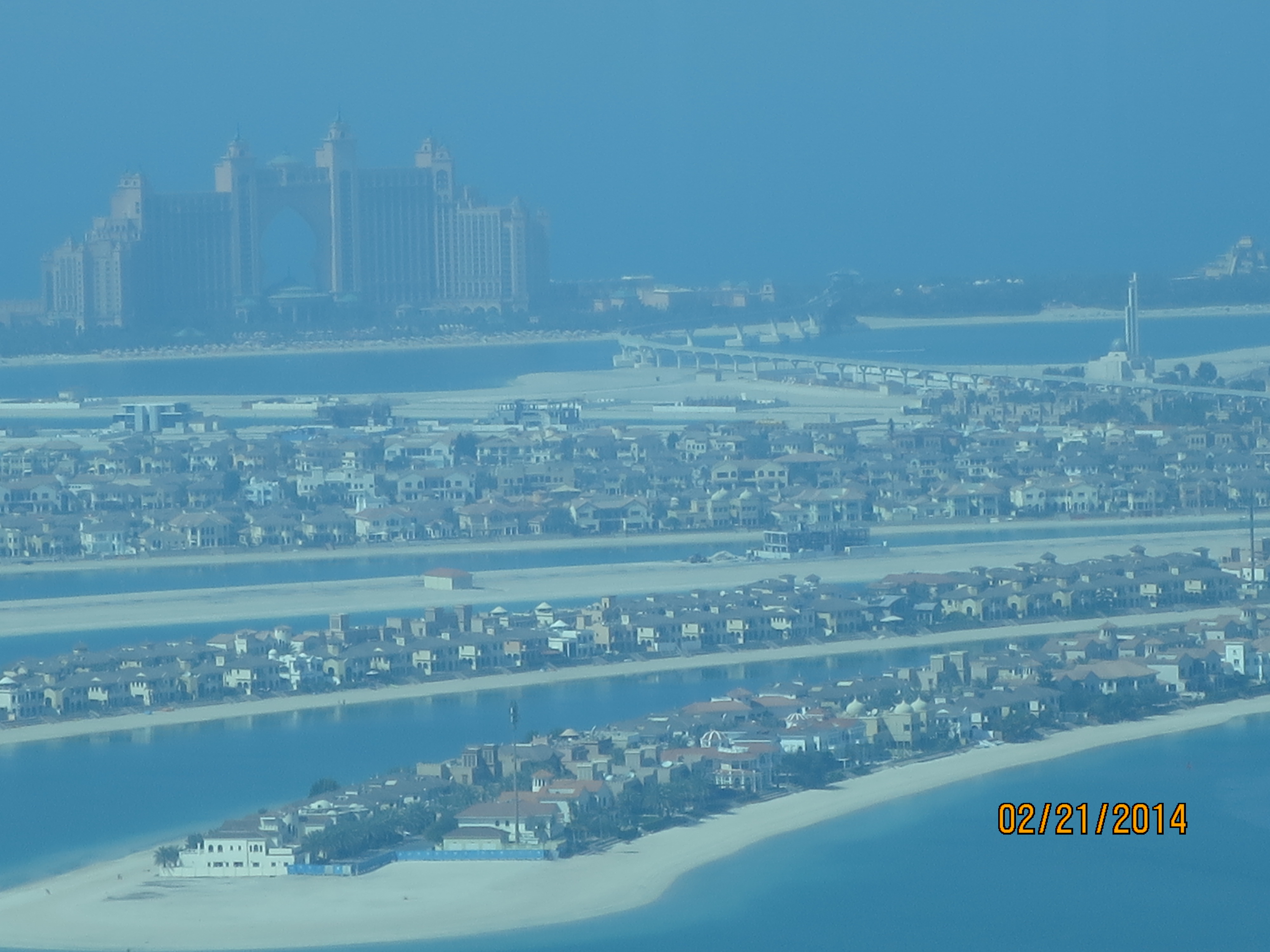
another view of the fronds with The Atlantis in the background, and the monorail to the left of the hotel
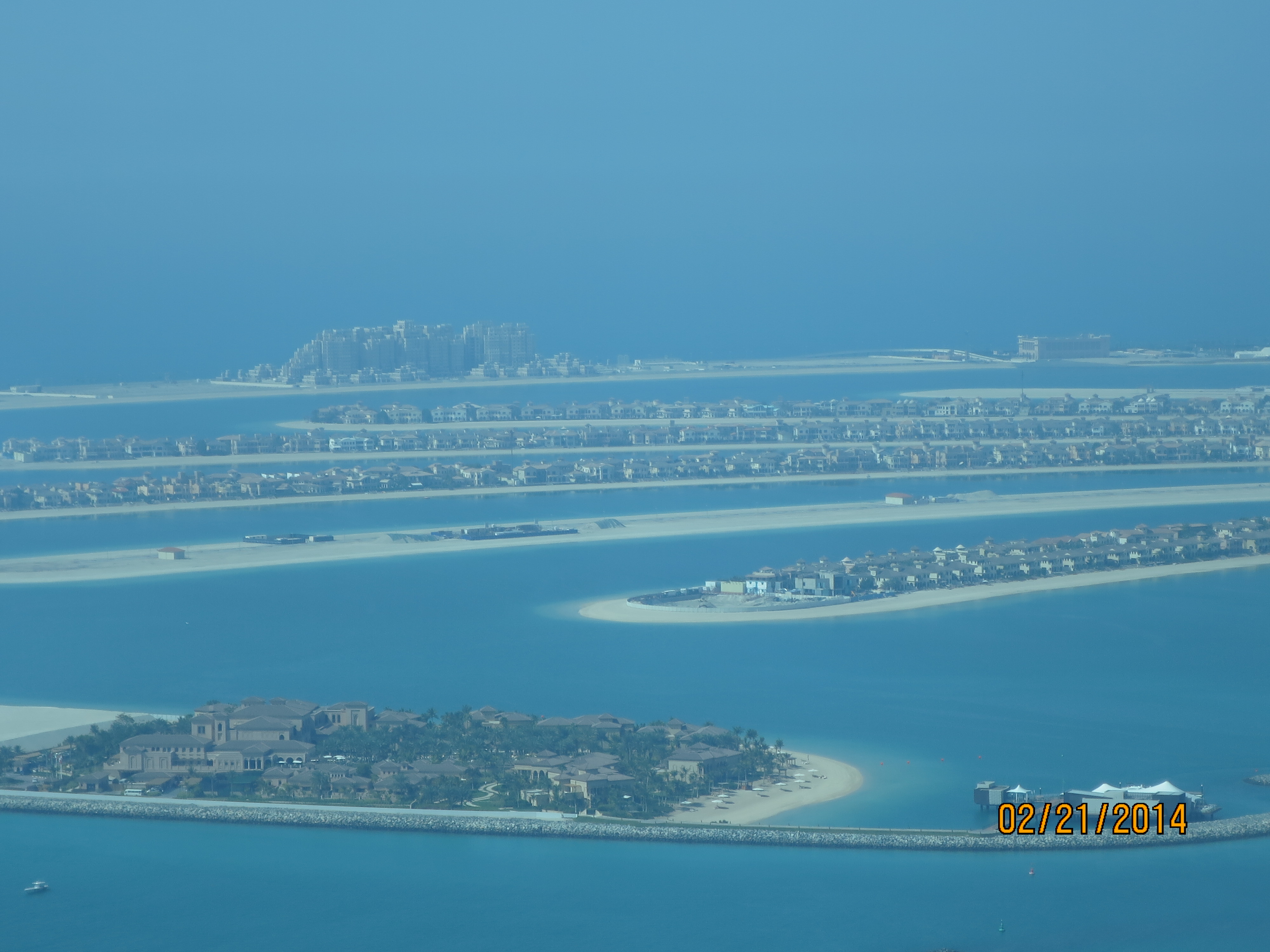
on the crescent, in the foreground a hotel resort, fronds with villas, and in the background on the crescent a hotel apartment complex
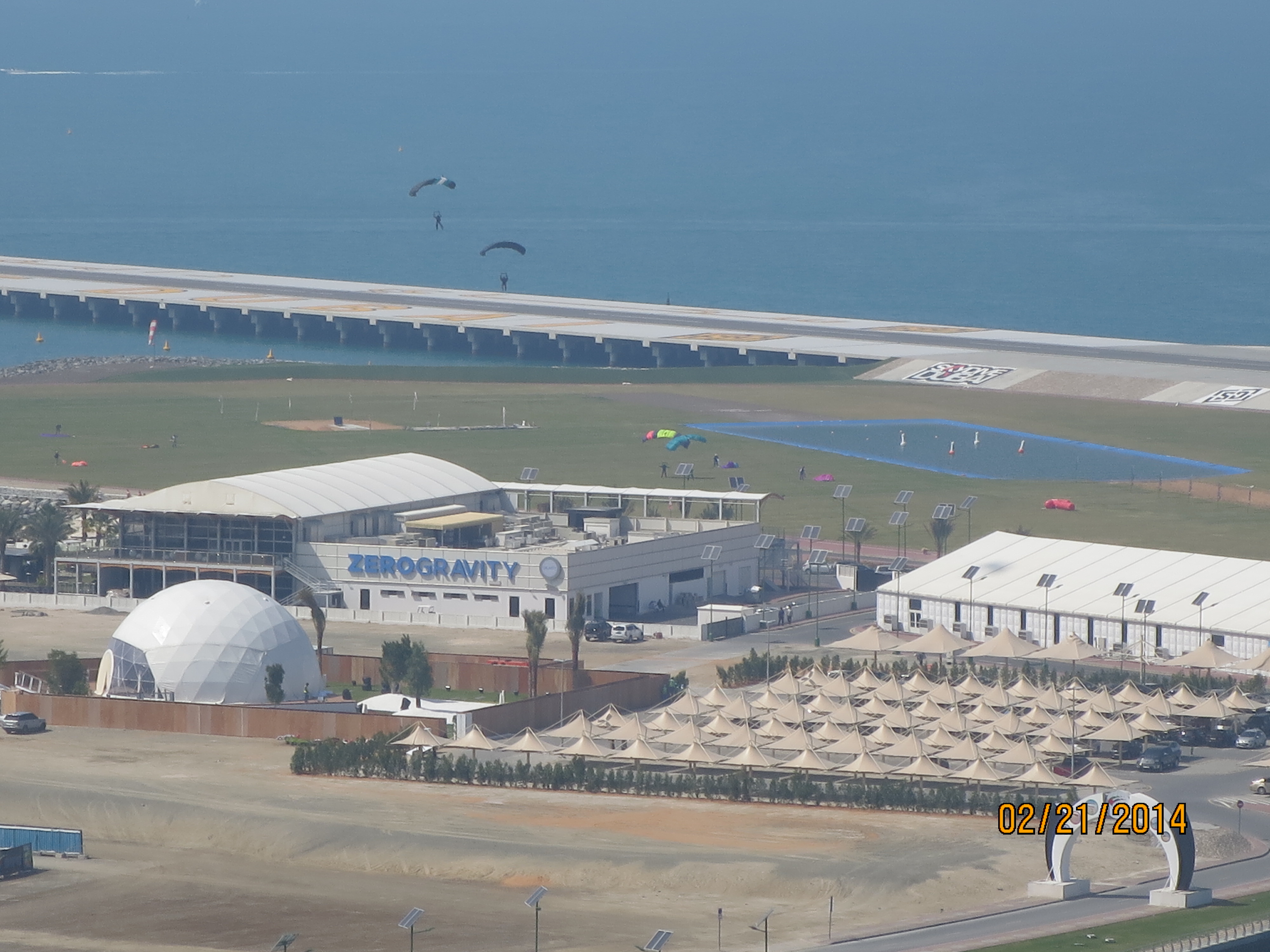
Skydive Dubai, situated on a little island just off shore, every half an hour 8 to 12 tandem skydivers would land, we watched them float out of the sky for several hours during brunch
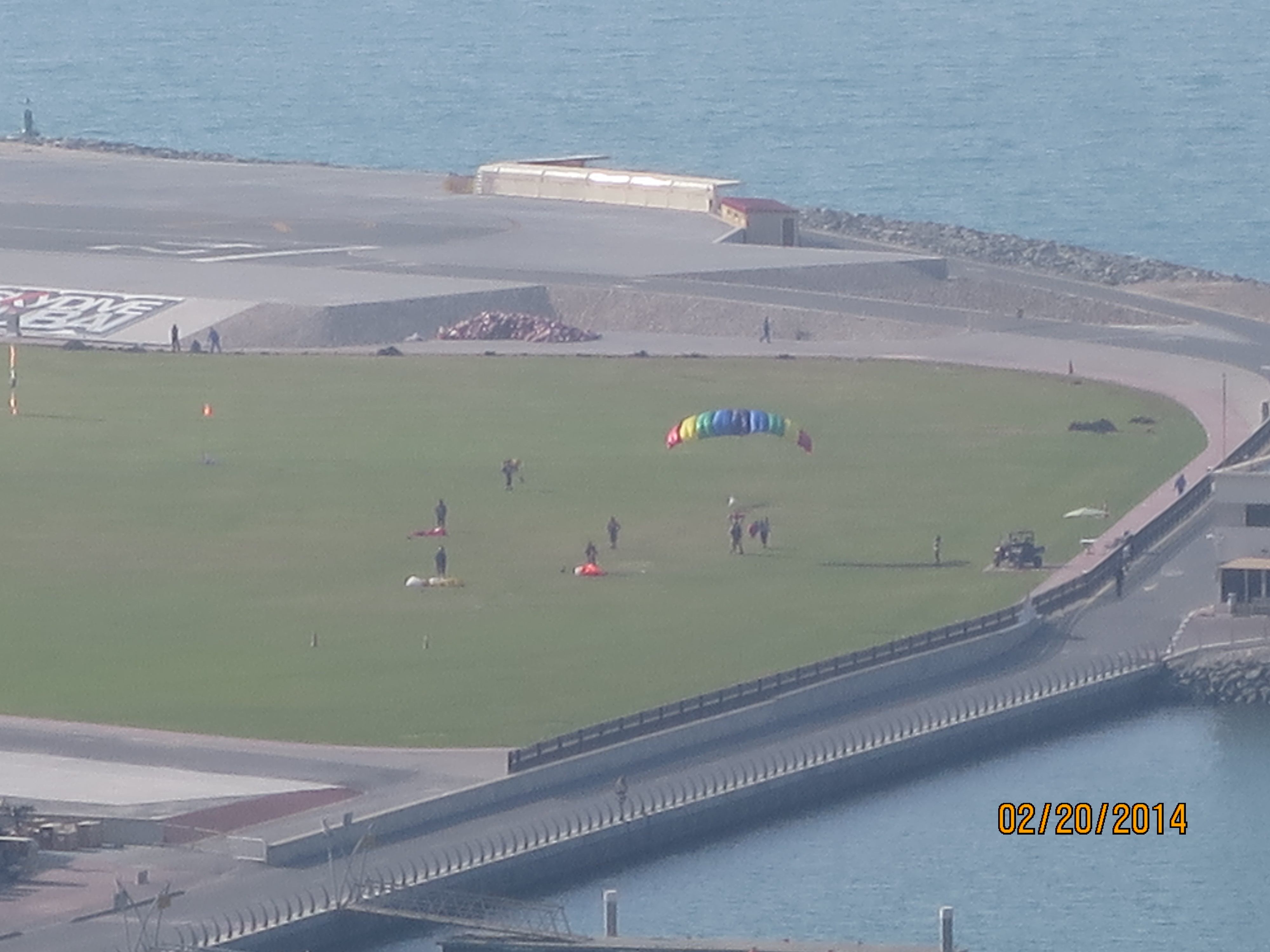
zoom in, it is hard to see but each skydiver sailed down with a paying customer, we estimated that they were in the air for 90 to 120 seconds
On a side note I thought this was an interesting statistic and I thought I would share it with you. This is very typical of most developing countries in the Middle East. The population of Dubai has changed considerably over the last 30 years. In 1975 Dubai’s population was 183,200, it currently stands at just over 2 million. It is estimated that 10-15% are Arab, the rest is made up of Indian (51%), Pakistani (16%), Iranian, Filipinos, Asian, Bangladeshis, Somalis all less than 10% and over 100,00 British expats plus various other nationalities.
“As of 2012, Dubai is the 22nd most expensive city in the world, and the most expensive city in the Middle East. Dubai has also been rated as one of the best places to live in the Middle East, including by American global consulting firm Mercer who rated the city as the best place to live in the Middle East in 2011.”

